Chicago is an American rock band formed in Chicago in 1967. The group began calling themselves the Chicago Transit Authority in 1968, then shortened the name in 1969. Self-described as a "rock and roll band with horns," and their songs often also combine elements of classical music, jazz, R&B, and pop music.

Peter Paul Cetera is a retired American musician best known for being a frontman, vocalist, and bassist for the American rock band Chicago from 1967 until his departure in 1985. His career as a recording artist encompasses 17 studio albums with Chicago and eight solo studio albums.

Chicago VI is the fifth studio album by American rock band Chicago and was released on June 25, 1973 by Columbia Records. It was the band's second in a string of five consecutive albums to make it to No. 1 in the US, was certified gold less than a month after its release, and has been certified two-times platinum since. It is the first album to feature percussionist Laudir de Oliveira, who would become a full-fledged member of the band for Chicago VIII. VI is the first studio album to feature the original band members on the cover before the death of leader and co-founder Terry Kath.
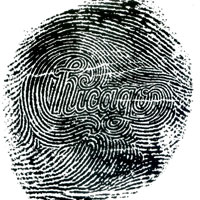
Chicago XIV is the twelfth studio album by American rock band Chicago, released on July 21, 1980. Recorded at a time of waning interest in the band, Chicago XIV remains one of Chicago's poorest-selling albums, failing to reach Gold certification by the Recording Industry Association of America (RIAA), and was deemed a commercial flop. It is also notable for being their last studio album with Columbia Records, and the last one to feature percussionist Laudir de Oliveira.

Chicago 16 is the thirteenth studio album by the American rock band Chicago, released on June 7, 1982. It is considered their "comeback" album because it was their first album to go platinum since 1978's Hot Streets. It made it into the Billboard 200 top ten, and produced their second number one single in the United States, "Hard to Say I'm Sorry." The album was certified gold by the Recording Industry Association of America (RIAA) in August, 1982, two months after its release, and platinum in December, 1982. "Hard to Say I'm Sorry" was nominated for a Grammy Award for Best Pop Performance by a Duo or Group with Vocal.
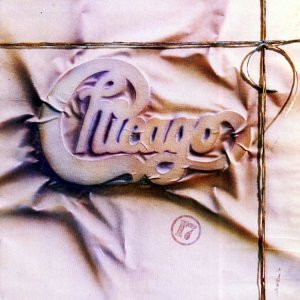
Chicago 17 is the fourteenth studio album by American rock band Chicago, released on May 14, 1984. It was the group's second release for Full Moon/Warner Bros. Records, their second album to be produced by David Foster and their last with founding bassist/vocalist Peter Cetera. As of 2023, it remains Chicago's best-selling album, with over 6.1 million units being sold in the United States, the United Kingdom, and Japan. Four singles were released from the album, all of which peaked in the top 20 on the Billboard Hot 100 chart. The success of the music videos for "Stay the Night", "You're the Inspiration", and "Hard Habit to Break" on MTV propelled Chicago 17 to achieve an RIAA certification of six times platinum.
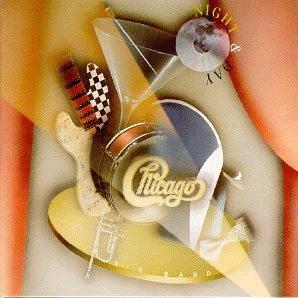
Night & Day: Big Band is the eighteenth studio album by the American band Chicago, and twenty-second overall, released in 1995. It is a departure from Top 40 material for a more thematic project, with a focus on classic big band, jazz, and swing music.
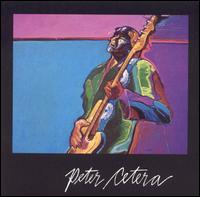
Peter Cetera, released in September 1981, is the self-titled first solo release by American musician Peter Cetera, released while he was the bassist and lead vocalist of the band Chicago.

Solitude/Solitaire is the second solo album by former Chicago bassist and vocalist Peter Cetera, and his first album after leaving the band in 1985. It was released in June 1986. The album includes the hits "Glory of Love" and "The Next Time I Fall" ; both reached the No. 1 position on the Billboard Hot 100 chart. Solitude/Solitaire was produced by Michael Omartian, who later co-produced Cetera's 2001 album, Another Perfect World.
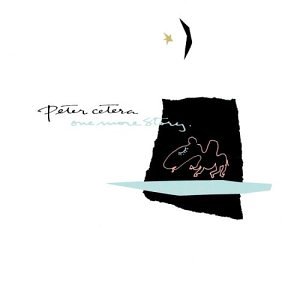
One More Story (1988) is the third solo album for music artist Peter Cetera and his second album after leaving the group Chicago. The album was co-produced by Patrick Leonard and Peter Cetera, and contains an appearance by Leonard's most famous artist at the time, Madonna. It also features Pink Floyd guitarist David Gilmour on "Body Language" and "You Never Listen to Me", as well as Oak Ridge Boys bass vocalist Richard Sterban and guitarist/vocalist Bonnie Raitt on "Save Me."
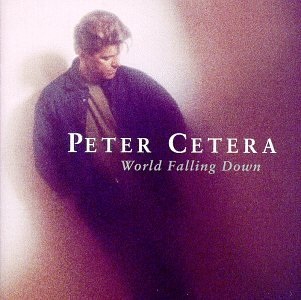
World Falling Down is the fourth solo album for music artist Peter Cetera, released in July 1992, and his third album since leaving the group Chicago.

"Hard to Say I'm Sorry" is a 1982 power ballad by the group Chicago. It was written by bassist Peter Cetera, who also sang the lead vocals on the track, and producer David Foster. It was released on May 17, 1982, as the lead single from the album Chicago 16. On September 11 it reached No. 1 for two weeks on the Billboard Hot 100. It was the group's second No. 1 single. It was their first top 50 hit since "No Tell Lover" in 1978 and it spent twelve weeks in the top 5 of the Billboard Hot 100. The single was nominated for a Grammy Award for Best Pop Performance by a Duo or Group with Vocal, and was certified gold by the Recording Industry Association of America (RIAA) in September of the same year. Songwriter Cetera, a member of the American Society of Composers, Authors and Publishers (ASCAP), won an ASCAP Pop Music Award for the song in the category, Most Performed Songs.

"Glory of Love" is a 1986 song performed by Peter Cetera, which he wrote and composed with his then-wife Diane Nini and David Foster. The song was recorded by Cetera shortly after he left the band Chicago to pursue a solo career. Featured in the film The Karate Kid Part II (1986), it was Cetera's first hit single after he left the band, reaching number one on the Billboard Hot 100, and it was included on his album Solitude/Solitaire (1986), which Michael Omartian produced.

"The Next Time I Fall" is a song written by Bobby Caldwell and Paul Gordon and recorded by a duet of Peter Cetera and Amy Grant for Cetera's 1986 album Solitude/Solitaire. It reached number one on Billboard magazine's Hot 100 and Adult Contemporary chart and was nominated for a Grammy Award for Best Pop Performance by a Duo or Group with Vocals. In February 2020, it was listed on a Billboard pop music list of top 25 love song duets.

"Beginnings" is a song written by Robert Lamm for the rock band Chicago Transit Authority and recorded for its debut album Chicago Transit Authority, released in 1969. The song is the band's second single, but failed to chart on its initial release.

"Wishing You Were Here" is a song written by Peter Cetera for the group Chicago and recorded for their album Chicago VII (1974), with lead vocals by Terry Kath, while Cetera sang the song's bridge. The third single released from that album, it reached No. 11 on the U.S. Billboard Hot 100, No. 9 on the Cash Box Top 100, and hit No. 1 on the Easy Listening chart.

"Hard Habit to Break" is a song written by Steve Kipner and John Lewis Parker, produced and arranged by David Foster and recorded by the group Chicago for their 1984 album Chicago 17, with Bill Champlin and Peter Cetera sharing lead vocals. Released as the second single from the album, it reached No. 3 on the Billboard Hot 100 and was prevented from charting higher by "Caribbean Queen" by Billy Ocean and "I Just Called to Say I Love You" by Stevie Wonder. "Hard Habit to Break" also peaked at No. 3 on the Adult Contemporary chart. The lyrics of the song appear to describe a man having a hard time getting over a significant other getting away after he took her for granted and she left him for someone else. Overseas it peaked at No. 8 on the UK Singles Chart.
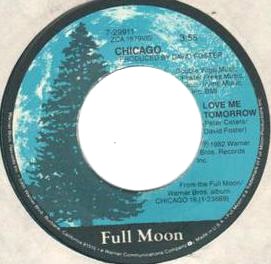
"Love Me Tomorrow" is a song written by Peter Cetera and David Foster for the group Chicago and recorded for their album Chicago 16 (1982), with Cetera singing lead vocals. The second single released from the album, it reached No. 22 on the U.S. Billboard Hot 100 chart and No. 8 on the adult contemporary chart. Songwriter Cetera, a member of the American Society of Composers, Authors and Publishers (ASCAP), won an ASCAP Pop Music Award for the song in the category, Most Performed Songs.
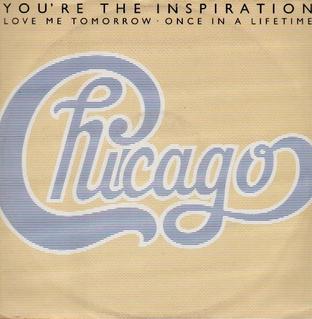
"You're the Inspiration" is a song written by Peter Cetera and David Foster for the group Chicago and recorded for their fourteenth studio album Chicago 17 (1984), with Cetera singing lead vocals. The third single released from that album, it reached No. 3 on the US Billboard Hot 100 chart in January 1985 and also climbed to the top position on the Adult Contemporary chart at the same time. The song won honors for Cetera from the American Society of Composers, Authors and Publishers (ASCAP), in 1986 in the most-performed songs category.
The American Video Awards (1983–1987) was an annual music video award show taped for distribution to television. TheFirst Annual American Video Awards was hosted by radio personality Casey Kasem, and Kasem continued in his role as emcee of the show in succeeding years. The first (1983), second (1984) and third shows were syndicated to television channels across the country. The Fourth Annual American Video Awards, however, was taped for broadcast on ABC to be aired during prime time, the first time that a video awards show was shown on prime time network television. The fifth (1987) show again aired in syndication. It was the last American Video Awards show. Two award ceremonies were held during 1985: the third annual ceremony was held in April 1985 and, because of contractual obligations to ABC, the fourth annual ceremony was held less than a year later, in November 1985.


















